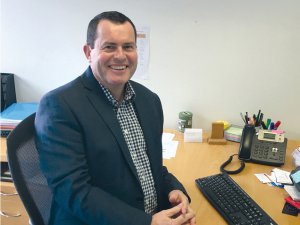Academic pharmacist Nataly Martini provides key information on Helicobacter pylori pathophysiology, diagnosis and evidence-based treatment strategies to enhance patient outcomes
Pharmacy Council’s finances in better shape than expected
Pharmacy Council’s finances in better shape than expected

THE PHARMACY COUNCIL is celebrating being in the red. The organisation expected a deficit because of a shorter financial year, but it wasn’t as high as expected.
The 2022 financial year ended on 31 March for the organisation, instead of 30 June, meaning a nine-month, instead of 12-month, reporting period.
The usual income from Annual Practising Certificates was included in the 2021 year, resulting in a deficit for 2022.
That deficit was $2.146 million in the nine months to 31 March 2022, about $500,000 less than the budgeted deficit of $2.687 million.
Several things led to the better-thanexpected result. They include better-thanbudgeted recoveries awarded from Health Practitioners Disciplinary Tribunal decisions and lower-than-budgeted costs for disciplinary cases.
Also playing a part were lower personnel costs due to the timing of resignations, recruitment and appointments; and lowerthan-expected costs for development work, governance and operating costs due to the impacts of COVID-19 alert level restrictions between June and December 2021.
In the Council’s 2022 annual report, chair Arthur Bauld and chief executive Michael Pead say they’re confident the council maintains sound and sustainable financial management.
There was a 5 per cent increase in practising numbers; 4231 pharmacists were practising on 31 March 2022, compared with 4062 on 30 June 2021.
They include 44 pharmacist prescribers, compared with 37 in the previous year. Intern pharmacist registrations were 309, up from 256.
They include 44 pharmacist prescribers, compared with 37 in the previous year. Intern pharmacist registrations were 309, up from 256.
Some 294 practising pharmacists did not renew their APC, 133 transferred to inactive (non-practising) status, 19 requested their removal from the register, and 142 made no application.
The Pharmacy Council managed 164 concerns about pharmacists’ practice, including 54 new formal complaints or notifications.
The number of concerns raised during the nine months to 31 March 2022 (169) is nearly as many as in the whole year to 30 June 2021.
Forty concerns were linked to the COVID-19 pandemic, and include a lack of access to medicines, pharmacies closing early or because of staff shortages, refusal to accept paper prescriptions and insufficient vaccine information.
Members of the public and health practitioners also complained about pharmacists posting misinformation about COVID-19 vaccines and other treatments.
The Professional Conduct Committee investigated 10 cases, down from 11 on the previous period.
Three Health Practitioners Disciplinary Tribunal cases were heard in the nine months to 31 March 2022, the same as in the year to 30 June 2021.
The Pharmacy Council managed 20 Health and Disability Commissioner cases, compared to 24 in the previous year.
The Pharmacy Council had a bigger turnover rate than normal during the period. Six employees out of 12 resigned in the nine months to 31 March 2022, compared with two in the 2021 financial year. COVID-19 played a part, and exit interviews showed team members re-evaluated their personal and work priorities.
“We have not yet found the new ‘norm’ and pharmacists, like others in the health system, have abnormal workloads and pressures,” say Mr Bauld and Mr Pead. “Council appreciates your hard work and the fact that you have continued to do this whilst ensuring the safety of the New Zealand public.”







